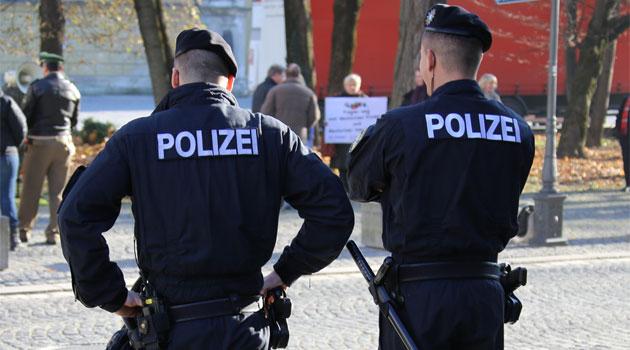Germany: Immigrants do not commit more crime than anybody else

On 10 June the German newspaper Die Welt reported that Germany’s Federal Crime Bureau (BKA) has published its data on immigrant perpetrators of crime for the first time ever. During the first quarter of 2016, 69 000 felonies in the country were committed by migrants.
The Interior Ministry says the crime rate among asylum-seekers, however, is not higher than it is among Germans. Migrants from Georgia, Morocco, and the Western Balkans are disproportionately represented as perpetrators of crime.
The crime rate among Iraqis and Syrians is rather low, Die Welt reports. Almost 1.1 million migrants arrived in Germany last year.
According to the findings of the Statistical Bureau from August 2015, the number of immigrants living in Germany in 2014 was 10.9 million. A large proportion of immigrants are college-educated.
This was the first time detectives have ever published their data on the crime rate among immigrants living in Germany’s 16 states. It is not, however, possible to compare this data with data from previous years, and the BKA spokesperson said that data showing the number of crimes perpetrated by German citizens during the first quarter of 2016 is also not yet available.
The German Interior Ministry has therefore used data from last year to make its comparisons. Czech news server iDNES.cz reported on 10 June that during 2015 roughly 6.4 million felonies were perpetrated in the country of 81 million people, or approximately 1.5 million crimes per quarter.
"Immigrants do not commit more criminal activity than Germans do," an Interior Ministry spokesperson characterized the BKA report as stating. In her view, this new data should contribute to a "fact-based debate" of the issue of immigration.
With respect to the number of persons seeking asylum in Germany, there is a disproportionately high number of citizens from Algeria, Georgia, Morocco, Serbia, Tunisia and Western Balkan countries in general among criminal perpetrators or suspects. The crime rate among asylum-seekers from Afghanistan, Iraq and Syria is below average given their numbers.
When it comes to what Die Welt reported as the "surprisingly high" crime rate among citizens of Serbia, the paper noted that a significant proportion of criminals holding Serbian passports are actually residents of Kosovo who participate in the criminal activity of the Albanian-speaking mafia in Germany. Serbia continues to consider Kosovo its province and offers Serbian identification documents to residents there without any difficulty.
Die Welt reports that there is also a problem with crime among Romani people from the Balkans that is not reflected in the BKA statistics, which do not track the ethnicity of perpetrators, only their citizenship. According to conservative politicians in Germany, most people from states such as Georgia or Serbia have no actual chance of being granted asylum in Germany and only file for asylum so they can remain in the country to commit crimes.
The Deutsche Presse-Agentur reports that France, Germany and Italy have been concerned there might be a growth in crime due to an "incursion" by organized crime groups from Georgia; on 8 June a proposed liberalization of visa relations between the European Union and Georgia was postponed. More than 29 % of all the crimes committed in Germany between January and March by asylum-seekers were thefts, while 28 % were crimes such as embezzlement, falsifying official documents, and fraud.
Roughly one-quarter of the crimes committed by migrants involved assault and crimes against personal freedom such as extortion or making credible threats. Manslaughter, murder and sexual offenses constitute just 1 % of the crimes committed by migrants in the statistics.
More than half of all felonies in the category of assault, manslaughter or murder were committed inside refugee facilities and in 50 % of the cases the perpetrator and victim were citizens of the same state. The BKA says the motivation for those crimes frequently has to do with ethno-cultural or religious clashes.